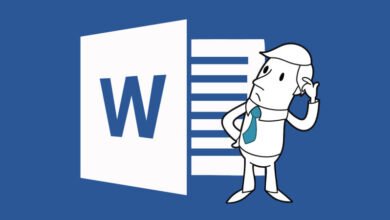
In today’s digital world, internet speed is more than just a number—it’s a crucial factor that influences how we work, play, and connect. One common benchmark is 100 Mbps. But how fast is 100 Mbps internet in real life? Can it support streaming, gaming, video calls, or multiple devices? This detailed guide breaks down what you can expect from a 100 Mbps internet connection and whether it’s the right fit for your household or business.
Understanding Internet Speed: Mbps Explained
Before diving into the specifics of a 100 Mbps internet plan, it’s important to understand what Mbps means. Mbps stands for megabits per second, a unit of measurement for data transfer speed. It tells you how much data can be downloaded or uploaded from the internet every second.
- Download Speed: The rate at which data is transferred to your device from the internet.
- Upload Speed: The rate at which data is transferred from your device to the internet.
When we talk about 100 Mbps internet, we’re usually referring to the download speed. Upload speeds are typically lower, often around 10 to 20 Mbps, depending on your provider and plan.
How Fast is 100 Mbps Internet in Everyday Terms?
To answer the question “How fast is 100 Mbps internet?” Let’s translate it into everyday tasks:
- Streaming: You can stream Full HD (1080p) content on 4-5 devices simultaneously without buffering.
- Gaming: Online gaming requires low latency more than high speed, but 100 Mbps easily supports smooth gameplay and game downloads.
- Video Calls: High-quality Zoom or Skype video calls are seamless, even with multiple users.
- Web Browsing & Social Media: Instant page loading and real-time interaction on social platforms.
- File Downloads: Download a 1 GB file in about 1-2 minutes under ideal conditions.
Is 100 Mbps Good for Streaming?
Yes, 100 Mbps is excellent for streaming. Here’s a breakdown of what you can do:
- Netflix HD streaming requires about 5 Mbps per stream.
- 4K Ultra HD content needs around 25 Mbps per stream.
- YouTube, Hulu, and Disney+: Most content streams comfortably at 5-10 Mbps.
With a 100 Mbps connection, you can stream 4K content on 3 devices simultaneously or HD content on up to 10 devices without issues.
Buffer-Free Experience
Buffering occurs when your internet can’t keep up with the data demands. With 100 Mbps, buffering is virtually eliminated for standard and high-definition content, even during peak hours.
Is 100 Mbps Good for Gaming?
Gaming doesn’t require as much bandwidth as people often think. Most online multiplayer games use around 3-5 Mbps. However, the critical factors are ping and latency, not just speed.
- Low Latency: Ensures minimal lag and quick response times.
- Game Downloads: A 100 Mbps internet speed allows you to download a 50 GB game in about 1 hour.
So, how fast is 100 Mbps internet for gamers? Fast enough for seamless play and efficient downloads, especially when no one else is hogging the connection.
Is 100 Mbps Enough for Working From Home?
With remote work becoming the norm, many ask, is 100 Mbps enough? The answer is yes—for most people.
- Video Conferencing: Platforms like Zoom or Microsoft Teams need 2-3 Mbps for HD calls.
- File Uploads: Upload speed (often 10-20 Mbps) handles most documents and cloud syncing easily.
- Multitasking: Multiple team members can work, attend meetings, and browse simultaneously.
100 Mbps is more than sufficient for a household of remote workers or students.
Is 100 Mbps Enough for a Family or Shared Household?
A major concern is whether 100 Mbps can support multiple users.
- 2-3 users: Easily handles streaming, browsing, and gaming.
- 4-6 users: It still works well, though occasional slowdowns may occur during high-demand activities.
- Smart Devices: Smart TVs, home assistants, and security systems also consume bandwidth.
If everyone is streaming 4K or downloading large files at once, you may want to consider upgrading to 200 Mbps or higher. But for most average households, 100 Mbps is adequate.
Upload Speeds: The Hidden Factor
Most people focus on download speed, but upload speed matters too—especially for:
- Uploading videos to YouTube
- Sending large email attachments
- Cloud backups
- Live streaming
With 100 Mbps plans, upload speeds vary. Make sure to check this with your provider. Even with 10-20 Mbps upload, most activities are manageable, but creators and heavy uploaders might need more.
Real vs. Advertised Speeds: What You Actually Get
The speed advertised by ISPs (Internet Service Providers) is the maximum theoretical speed. Real-world speeds can be affected by:
- Network congestion
- Wi-Fi signal strength
- Outdated routers or devices
- Distance from the ISP’s server
To ensure you’re getting the best from your 100 Mbps connection:
- Use a wired Ethernet connection when possible.
- Upgrade your router to support higher speeds.
- Keep firmware and drivers updated.
Comparing 100 Mbps with Other Speeds
| Speed Tier | Ideal For |
|---|---|
| 25 Mbps | Light browsing, email, 1-2 devices |
| 50 Mbps | HD streaming, video calls, 2-3 users |
| 100 Mbps | Streaming, gaming, working from home, 4+ users |
| 200-500 Mbps | Large households, heavy streaming, smart homes |
| 1 Gbps | Tech-heavy homes, professional creatives |
100 Mbps sits in the sweet spot for cost and performance.
Pros and Cons of 100 Mbps Internet
Pros:
- Supports multiple users and devices
- Smooth streaming and gaming
- Fast downloads
- Affordable and widely available
Cons:
- May struggle with simultaneous 4K streaming on many devices
- Limited upload speed for content creators
- Not future-proof for ultra-connected smart homes
Tips to Maximize Your 100 Mbps Connection
- Use Wired Connections: Ethernet provides more stable and faster speeds than Wi-Fi.
- Router Placement: Centralize your router to reduce dead zones.
- Limit Background Apps: Background updates can eat bandwidth.
- Upgrade Equipment: Use a modern modem/router combo for better performance.
- Schedule Heavy Downloads: Avoid peak times when the network is congested.
Conclusion: Is 100 Mbps Internet Fast Enough?
So, how fast is 100 Mbps internet? It’s fast enough for most households and small offices. Whether you’re streaming Netflix, attending Zoom meetings, gaming online, or managing smart home devices, a 100 Mbps plan offers excellent performance at a reasonable cost.
While it may not be future-proof for ultra-connected homes or professional-grade needs, it remains a solid choice for typical users. Always consider your household’s specific usage patterns before choosing an internet plan.











